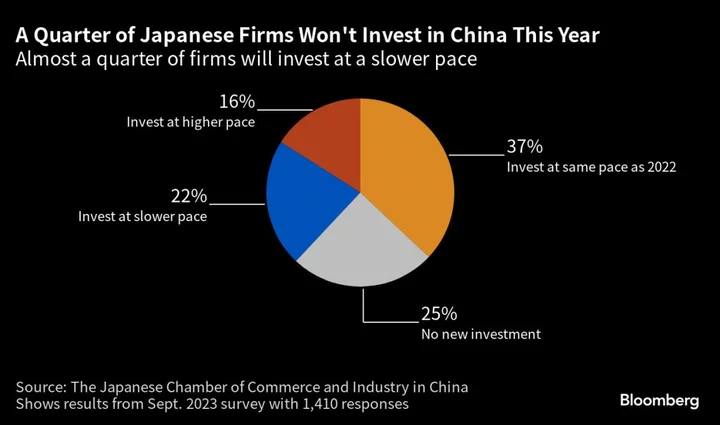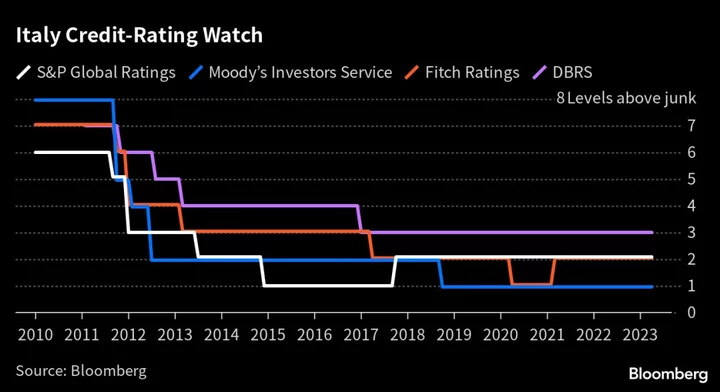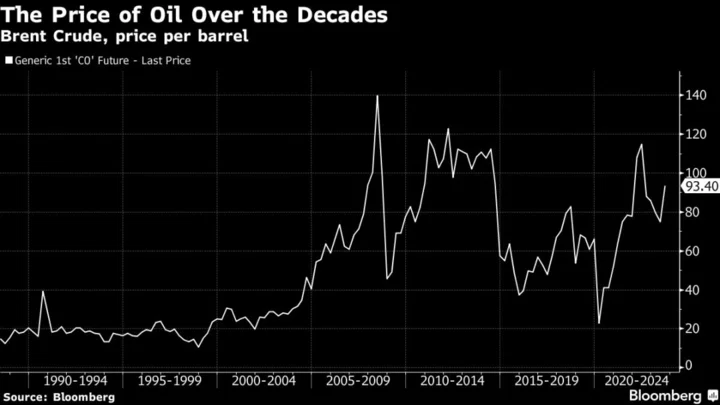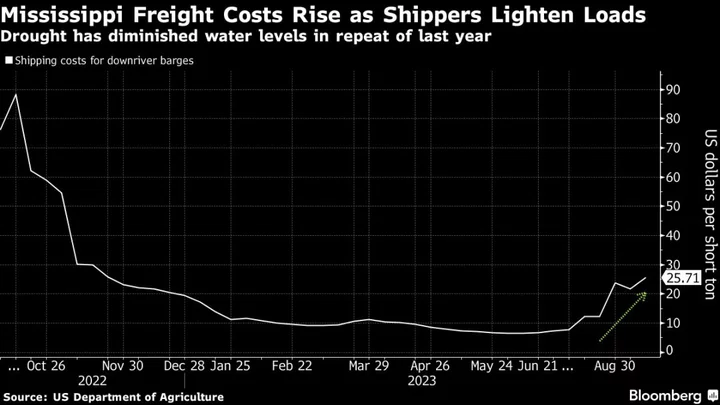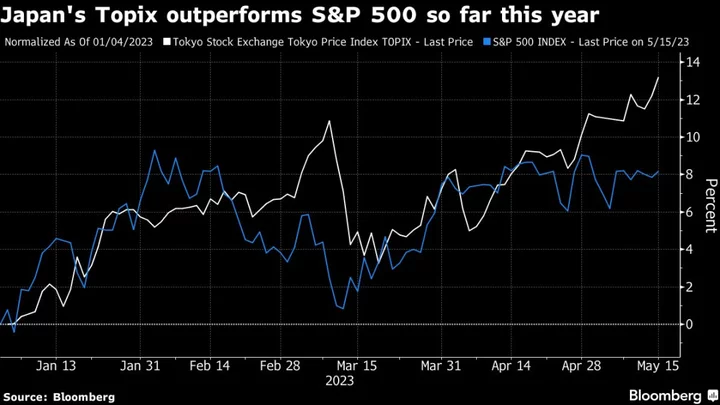Japanese companies in China see the economic situation as grim, according to a new report from the Japanese Chamber of Commerce and Industry in China released Thursday.
A quarter of the respondents said they wouldn’t invest in China this year while another 22% said they would reduce the amount they invest, according to the report. Japanese companies are one of the largest groups of foreign investors in China, and their reluctance to lift spending is a further drag on an economy which is already struggling this year.
More than half the Japanese firms doing business in China saw their revenue and profits fall last quarter from the previous three months, one factor that is making Japanese businesses more cautious about investing in China. Many firms cited shrinking domestic demand as a key reason behind the decline.
That slowdown adds to a list of factors which have made Japanese firms less likely to spend in China. Other issues include pandemic travel curbs, increasing anti-Japanese feelings in China and bilateral tensions worsened by the arrest of a Japanese pharmaceutical company executive this year.
Around 1,400 firms responded to the survey between Sept. 8-22, with roughly 60% of those surveyed saying they were manufacturers.
Former Japanese Foreign Minister Yohei Kono asked China’s premier to improve the overall environment for Japanese businesses in the country, in what appeared to be an oblique criticism of the situation during a visit to Beijing in July.
Since then, the Chinese government has announced a 24-point plan to attract more foreign investment. But the business community is still waiting for the Chinese government to provide details on how most of these will be implemented, according to Tetsuro Homma, the chairman of the chamber. The only two changes so far have been an extension of tax breaks for foreign employees, and improved access to Chinese visas, he said.
The report didn’t have data on the reasons why many companies were unwilling to add to their investments in China, but did include some representative comments.
One from an unnamed trading company said that its head office in Tokyo was concerned about risks, while a pharmaceutical company said that it was concerned about inflation. A food manufacturer noted that Chinese and overseas demand was weak.
Separately, rising labor costs were cited by two-thirds of companies as a major issue for business, with 56% of manufacturers and 72% of non-manufacturers saying that the international situation was also a problem. However, more than 70% of companies said they were treated the same as Chinese firms.
Read more: Japan Public Opinion Turns Most Negative on China in Nine Years
Bilateral relations between China and Japan remain tense. Beijing has criticized Japan’s release of treated nuclear wastewater into the Pacific Ocean, and sees Tokyo’s increased military ties with the US, South Korea and other partners as an attempt to encircle China. Tokyo also signed a Group of Seven statement in May that backed de-risking — a policy seen by Beijing as aimed at containing China’s development.
For its part, Tokyo is unhappy about the intrusion of Chinese coast guard ships into waters claimed by both sides but controlled by Japan, and China’s increasingly aggressive military actions around Taiwan.
(Updates with more details from third paragraph.)

